Home> Company News> Flow Compensators: How They Work and Why They're Important in Hydraulic Systems
- AddressNo.9088 SHAHEXI ROAD, NANSHAN DISTRICT,SHENZHEN,CHINA
- Factory AddressNo.9088 SHAHEXI ROAD, NANSHAN DISTRICT,SHENZHEN,CHINA
- Worktime9:00-18:00
- Phone(Working Time)0531-85064681
- Phone(Nonworking Time)0531-85064681
- Fax0531-85064681
Hydraulic systems are essential components in modern machinery, providing the force and power necessary to perform a variety of tasks. However, these systems can be prone to inefficiencies and inaccuracies due to variations in fluid flow. This is where flow compensators come in, serving to regulate and stabilize flow rates in hydraulic systems.
Flow compensators are hydraulic components that are designed to maintain a constant flow rate despite variations in pressure or load. This is achieved by controlling the flow of hydraulic fluid through the system, ensuring that the necessary amount of fluid is delivered to each part of the system at a consistent rate.
In hydraulic systems, flow compensators are critical components that help to ensure efficient and accurate operation. Without proper flow regulation, hydraulic systems can suffer from inconsistent performance, reduced efficiency, and increased wear and tear on components.
This paper will provide an overview of flow compensators, including their working principles, applications, selection and installation, and future developments. By understanding the importance of flow compensators in hydraulic systems, readers will be better equipped to optimize the performance and longevity of their hydraulic systems.

Working Principles of Flow Compensators
Flow compensators are essential components in hydraulic systems that regulate the flow of hydraulic fluid to ensure optimal performance. They are commonly used in a variety of applications such as power generation, construction equipment, mining machinery, and aerospace systems. Flow compensators can be defined as components that maintain a consistent flow rate of hydraulic fluid, despite changes in pressure or flow resistance.
The working principles of flow compensators are based on a combination of mechanical and hydraulic mechanisms. These components can be categorized into two main types: fixed and variable flow compensators. Fixed flow compensators are designed to maintain a constant flow rate regardless of the system pressure, whereas variable flow compensators can adjust the flow rate to match the system requirements.
The performance of flow compensators is influenced by several factors, including fluid viscosity, pressure, and temperature. The viscosity of the hydraulic fluid can impact the accuracy of the flow compensator, as thicker fluids can cause increased resistance and a slower flow rate. Additionally, changes in system pressure and temperature can affect the operation of flow compensators, requiring adjustments to maintain optimal flow.
Flow compensators are commonly used in a wide range of hydraulic systems due to their many advantages. These components can provide stable and consistent fluid flow, which can improve system efficiency and reduce energy consumption. By maintaining a constant flow rate, flow compensators can also prevent damage to hydraulic components, reducing the need for repairs and maintenance.
Despite their benefits, flow compensators also present some limitations and challenges in hydraulic system design. For example, the high-pressure drop across the flow compensator can cause energy losses, which can affect the overall efficiency of the system. Additionally, the performance of flow compensators can be impacted by changes in fluid viscosity, pressure, and temperature, requiring frequent adjustments to ensure optimal flow rates.
In summary, understanding the working principles and applications of flow compensators is essential for optimizing hydraulic system performance. Proper selection, installation, and maintenance of flow compensators can help ensure consistent and efficient fluid flow, leading to improved system performance and reduced maintenance costs.
Applications of Flow Compensators
Flow compensators are widely used in various hydraulic systems, including but not limited to agricultural, construction, and industrial machinery. The compensators are designed to maintain a constant flow rate regardless of changes in pressure and volume, making them an essential component in hydraulic systems where precision and control are critical. Here are some common applications of flow compensators in different hydraulic systems:
-
Agriculture Machinery: Flow compensators are used in various agricultural machinery, including tractors, harvesters, and sprayers. They are used to regulate the flow rate of hydraulic fluids to ensure the proper operation of various components, such as hydraulic motors, cylinders, and valves. For example, flow compensators are used to regulate the flow rate of hydraulic fluids in the hydraulic cylinder that operates the plow or tiller of a tractor.
-
Construction Machinery: Flow compensators are also used in various construction machinery, such as excavators, loaders, and backhoes. In these applications, the compensators are used to regulate the flow rate of hydraulic fluids to control the speed and force of various components, such as hydraulic cylinders and motors. For example, flow compensators are used to regulate the flow rate of hydraulic fluids in the hydraulic cylinder that controls the bucket of an excavator.
-
Industrial Machinery: Flow compensators are widely used in various industrial applications, such as manufacturing and material handling. In these applications, the compensators are used to regulate the flow rate of hydraulic fluids to control the speed and force of various components, such as hydraulic cylinders and motors. For example, flow compensators are used to regulate the flow rate of hydraulic fluids in the hydraulic cylinder that operates the clamp of a robotic arm in a manufacturing plant.
Advantages of flow compensators in hydraulic systems include improved precision, control, and efficiency. By maintaining a constant flow rate, flow compensators can help to ensure that hydraulic systems operate smoothly and without interruption, reducing the risk of equipment failure and downtime. However, there are also some limitations and challenges associated with using flow compensators in hydraulic systems, including the need for regular maintenance and calibration to ensure proper operation.
Selection and Installation of Flow Compensators
The selection and installation of flow compensators play a crucial role in ensuring the efficient operation of hydraulic systems. Proper selection and installation can help optimize the performance of the hydraulic system while also prolonging the life of the flow compensator. In this section, we will discuss the factors to consider when selecting a flow compensator, installation requirements, and maintenance and troubleshooting.
Factors to Consider When Selecting a Flow Compensator
When selecting a flow compensator, it is important to consider various factors to ensure that it meets the requirements of the hydraulic system. These factors include:
Flow rate
The flow rate of the hydraulic system is a critical factor in selecting a flow compensator. The flow compensator must be able to regulate the flow rate within the desired range. If the flow rate is too high or too low, it can cause damage to the hydraulic system or reduce its efficiency.
Operating pressure
The operating pressure of the hydraulic system is also an important factor to consider when selecting a flow compensator. The flow compensator must be capable of regulating the flow rate under the operating pressure of the system. If the compensator is not rated for the operating pressure of the system, it can cause damage to the hydraulic system or fail to regulate the flow rate effectively.
Fluid viscosity
Fluid viscosity is another important factor to consider when selecting a flow compensator. The flow compensator must be able to regulate the flow rate effectively for fluids of different viscosities. If the viscosity of the fluid is too high or too low, it can affect the performance of the flow compensator.
Temperature
The temperature of the hydraulic fluid can also affect the performance of the flow compensator. The compensator must be able to operate within the temperature range of the hydraulic system. If the temperature is too high or too low, it can cause the flow compensator to malfunction or fail.
Compatibility
The flow compensator must be compatible with the hydraulic fluid and other components in the hydraulic system. Incompatible components can cause leaks, reduce the efficiency of the system, or cause damage to the components.
Installation Requirements for Flow Compensators
Proper installation of flow compensators is crucial to ensure the efficient operation of hydraulic systems. Here are some installation requirements to consider:
Mounting position
The flow compensator should be mounted in a position that allows for proper flow regulation and maintenance. It should be easily accessible for inspection and maintenance.
Piping
The piping used to connect the flow compensator to the hydraulic system should be compatible with the fluid and the compensator. It should also be properly sized to ensure the desired flow rate.
Filtration
The hydraulic system should have proper filtration to prevent contamination of the hydraulic fluid. This can help prevent damage to the flow compensator and other components in the hydraulic system.
Maintenance and Troubleshooting of Flow Compensators
Proper maintenance and troubleshooting can help prolong the life of the flow compensator and ensure the efficient operation of the hydraulic system. Here are some maintenance and troubleshooting requirements to consider:
Inspection
Regular inspection of the flow compensator can help identify any issues before they cause damage to the hydraulic system. This can include checking for leaks, proper mounting, and any signs of wear or damage.
Cleaning
The flow compensator should be kept clean to prevent contamination of the hydraulic fluid. Any dirt or debris on the compensator can affect its performance.
Replacement
If the flow compensator is not functioning properly, it may need to be replaced. It is important to ensure that the replacement compensator meets the requirements of the hydraulic system.
Troubleshooting
If the hydraulic system is not functioning properly, the flow compensator may be the source of the issue.
Future Developments in Flow Compensators:
Flow compensators have been an integral part of hydraulic systems for several decades, and their importance has only increased over time. As industries evolve, so do the technologies that support them. In the case of flow compensators, there are several exciting developments on the horizon that have the potential to revolutionize hydraulic systems.
One area of focus for flow compensator development is increasing efficiency. Researchers are exploring ways to improve the accuracy and response time of flow compensators to reduce energy consumption and improve system performance. New materials and designs are being tested to achieve this goal.
Another area of interest is the use of digital technology to enhance the functionality of flow compensators. Advances in sensors and control systems are allowing for more precise control and monitoring of hydraulic systems, leading to improved performance and reliability. The use of artificial intelligence and machine learning algorithms is also being explored to further optimize hydraulic systems.
In addition, efforts are being made to improve the durability and longevity of flow compensators. Research is being conducted on materials and coatings that can withstand harsh operating environments, reducing the need for frequent replacements and repairs. This will result in lower maintenance costs and increased uptime for hydraulic systems.
Finally, as the world becomes increasingly focused on sustainability and reducing emissions, flow compensators are being developed to support this trend. New technologies, such as hydraulic hybrid systems, are being developed that rely on flow compensators to optimize energy usage and reduce emissions. These systems have the potential to make a significant impact on reducing the environmental footprint of hydraulic systems.
Overall, the future of flow compensators looks promising, with significant potential for improvement in efficiency, functionality, durability, and sustainability. As industries continue to evolve and face new challenges, the development of new flow compensator technologies will be critical in meeting these challenges head-on.
Flow compensators play an important role in optimizing hydraulic system performance. By providing a constant flow rate, flow compensators help to ensure that hydraulic systems operate efficiently and reliably. As flow compensator technology continues to evolve, there are many exciting trends and innovations on the horizon.
One trend in flow compensator technology is the development of smart flow compensators. These devices are equipped with sensors and advanced control algorithms that allow them to adjust their flow rates in response to changing operating conditions. By providing real-time feedback and control, smart flow compensators can help to optimize system performance and reduce energy consumption.
Another area of research in flow compensator technology is the development of lightweight and compact designs. As hydraulic systems continue to become more compact and portable, there is a growing need for flow compensators that can operate in tight spaces and withstand harsh operating conditions. Advances in materials science and manufacturing techniques are making it possible to create flow compensators that are lighter, smaller, and more durable than ever before.

In addition to these technical advances, there are also many new applications for flow compensators emerging in various industries. For example, flow compensators are being used in hydraulic systems for renewable energy generation, such as wind turbines and solar power plants. In these applications, flow compensators help to regulate the flow of hydraulic fluid to ensure efficient operation of the equipment.
Another emerging application for flow compensators is in the field of robotics. As robots become more advanced and versatile, there is a growing need for hydraulic systems that can provide precise and reliable control over their movements. Flow compensators can help to ensure that hydraulic actuators operate smoothly and predictably, allowing robots to perform complex tasks with greater speed and accuracy.
As flow compensator technology continues to evolve and expand, there are many exciting possibilities for the future of hydraulic systems. Whether through the development of new materials and designs, or the integration of advanced sensors and control algorithms, flow compensators are poised to play a critical role in optimizing hydraulic system performance and enabling new applications in a wide range of industries.


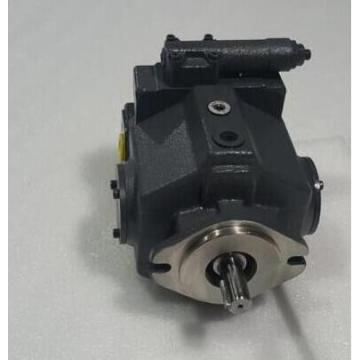 KAWASAKI K3V63DT PISTONS
KAWASAKI K3V63DT PISTONS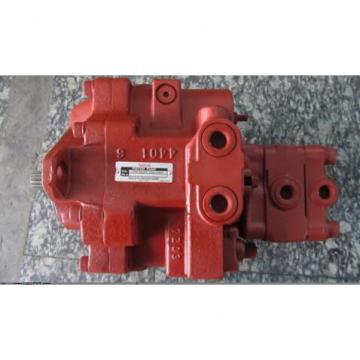 KAWASAKI K3V112DT CYLINDER BLOCK AND R.H. PLATE
KAWASAKI K3V112DT CYLINDER BLOCK AND R.H. PLATE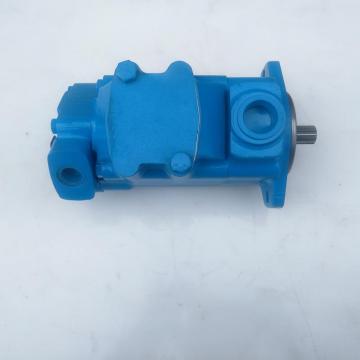 KAWASAKI K3V140DT SHOE PLATE FOR HYDRAULIC OR HYDROSTATIC EXCAVATOR
KAWASAKI K3V140DT SHOE PLATE FOR HYDRAULIC OR HYDROSTATIC EXCAVATOR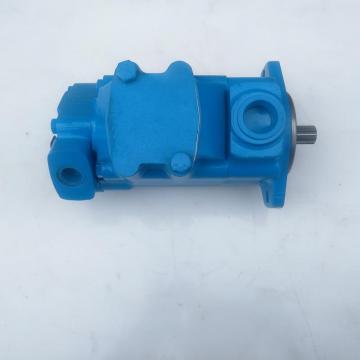 KAWASAKI K3V140DT RIGHT HAND ROTATING GROUP FOR HYDRAULIC EXCAVATOR
KAWASAKI K3V140DT RIGHT HAND ROTATING GROUP FOR HYDRAULIC EXCAVATOR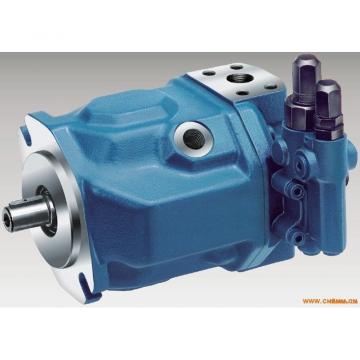 KAWASAKI K3V63DT CYLINDER BLOCK AND L.H. PLATE FOR HYDRAULIC EXCAVATOR
KAWASAKI K3V63DT CYLINDER BLOCK AND L.H. PLATE FOR HYDRAULIC EXCAVATOR